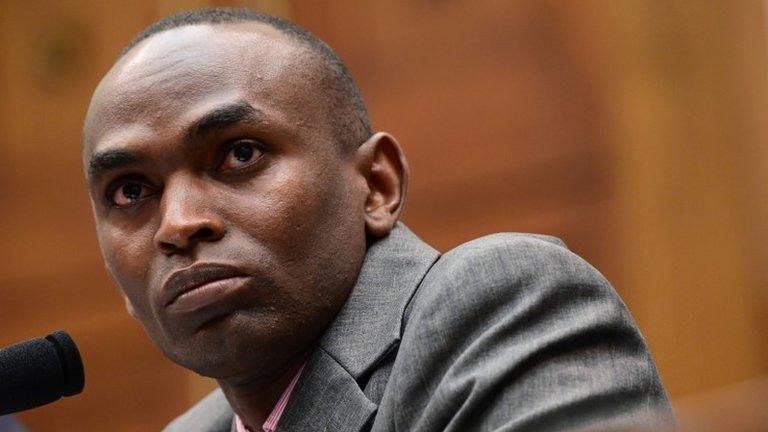Victims' families slam report into 737 Max crashes
- Published
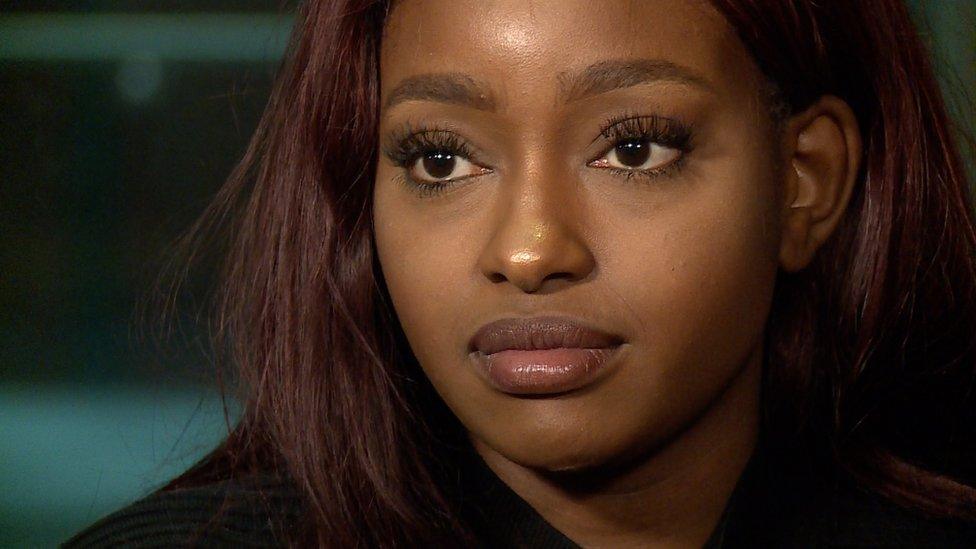
Zipporah Kuria, the daughter of Joseph Wathaika - who was killed in the Ethiopian Airlines crash - said the existing system has "already dearly cost us"
Relatives of a man killed in one of two crashes involving a Boeing 737 Max have condemned a report into the disasters.
The expert panel behind the report concluded the system used to certify the aircraft as safe was "effective".
But the family of Joseph Waithaka has described the report as "an extremely appalling and disappointing attempt to defend a flawed system".
Mr Waithaka died in March when an Ethiopian Airlines jet crashed shortly after takeoff from Addis Ababa.
The report, from a committee set up to look at the processes involved in clearing the aircraft to fly, concluded that the regulators were right to delegate a significant amount of certification work to Boeing itself.
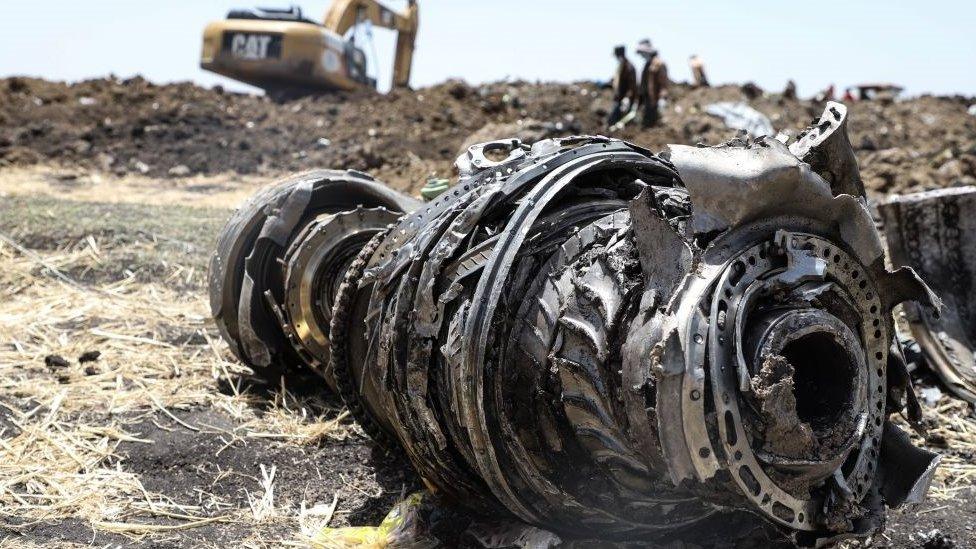
Ethiopian Airlines' flight ET302 crashed shortly after take off from Addis Abiba in March
The 737 Max is Boeing's fastest selling aircraft. An updated version of the company's short- and medium-haul workhorse, it was designed to be much more fuel efficient than its predecessors.
But the model has been grounded since March. Regulators banned it from flying in the aftermath of a crash in Ethiopia, in which 157 people were killed.
It was the second major accident involving the plane in the space of a few months. In November 2018, 189 people died when a 737 Max crashed into the sea off Indonesia.
In both cases, it is believed a flight control system known as MCAS activated at the wrong time, forcing the nose of the aircraft downwards when the aircraft was meant to be climbing.
It did so because it relied on data from a single sensor, which appears to have failed on both aircraft.
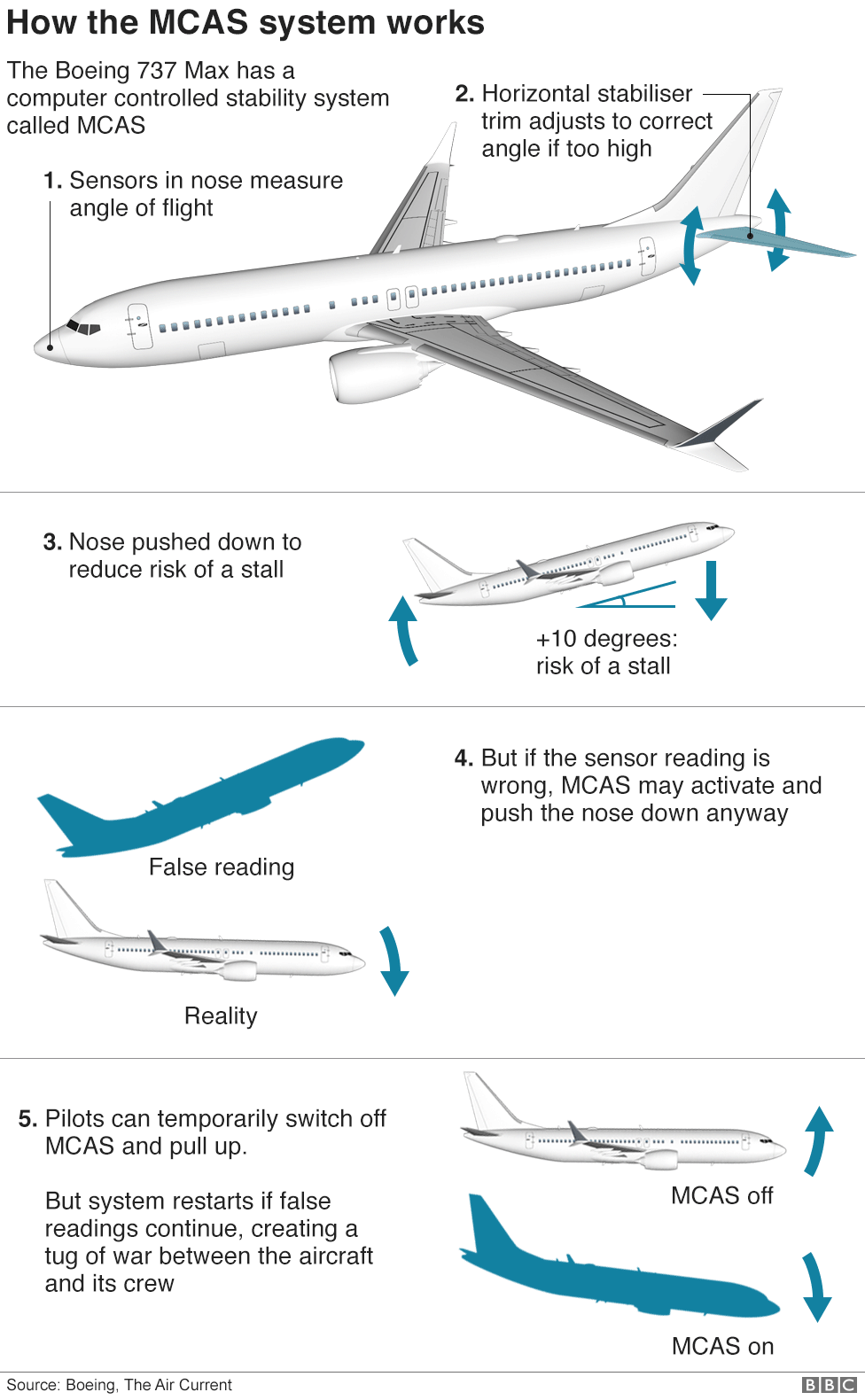
In the wake of the accidents, Boeing has faced intense criticism for allowing an apparently flawed aircraft onto the market. The US regulator - the Federal Aviation Administration - has been condemned for failing in its duty of oversight.
'Designed by clowns'
There have been widespread suggestions that the relationship between the two was simply too cosy, and that too much of the work needed to certify the aircraft as safe to fly was delegated to Boeing itself.
And last week, internal messages released by Boeing prompted further criticism. In one, an employee described the 737 Max as "designed by clowns who are in turn supervised by monkeys".
Other messages were derogatory about the FAA, and showed how Boeing staff had attempted to put pressure on the regulator.
However, the expert panel found little to criticise in the process that had cleared the aircraft to fly.
The panel was set up in April last year by the Secretary of transportation, Elaine Chao. It was chaired by Lee Moak, a former president of the Air Line Pilots Association and Darren McDew, a former Air Force commander.
The report said the panel "found the FAA's overall certification system to be effective" - although it added that "reforms must be adopted to help our extremely safe aviation system become even better at identifying and mitigating risk".
It also endorsed the system of delegating certification work to Boeing itself, calling it "an appropriate and effective tool for conducting aircraft certification". It went on to say the system was "solidly established, well controlled, and promotes safety through effective oversight".
The review did set out a list of improvements it said should be made to the certification system.
Among them, it recommended introducing measures to take greater account of human factors, and how pilots might interact with automated systems.
It also suggested expanding the use of detailed and comprehensive evaluations of individual systems and taking steps to protect the independence of employees carrying out certification tasks.
'Minimal and feeble'
But the family of Mr Wathaika told the BBC they were deeply disappointed by the report.
"It's a shock that there were minimal and feeble suggestions for change despite the magnitude of loss as a result of the current systems," his daughter, Zipporah Kuria, said.
"Boeing has been extremely untrustworthy, deceitful and profit-driven. As families who have paid the price for that, we hope that the FAA would look to attain a higher level of safety," she said
"Following this report would mean that the FAA's level of safety would remain the same, which has already dearly cost us, as victim families, so much - not once but twice".
That view was shared by Michael Stumo, whose daughter Samya was also on the Ethiopian plane. He told the Associated Press the report endorsed self-regulation by Boeing.
"This report is written as if by pre-crash industry lobbyists defending the current certification system," he said.
'The system failed'
The report also had a lukewarm reception from the chair of the Transportation Committee in the US House of Representatives, which has been holding a lengthy inquiry into the 737 Max.
In a statement, Democrat congressman, Peter De Fazio, said: "Our investigation has already revealed multiple junctures at which the current certification process failed."
He added that 346 people had died "because the system failed".
"Not addressing the failures head on would be a grave mistake," he said.
However, the expert panel's findings were backed by the senior Republican on the committee.
Congressman Sam Graves - who has previously insisted that pilot error was a factor in both crashes involving the 737 Max - described the report as an "unbiased expert review".
He said it "confirms aviation in the United States is safe and that we remain the global gold standard for aviation safety".
- Published10 January 2020
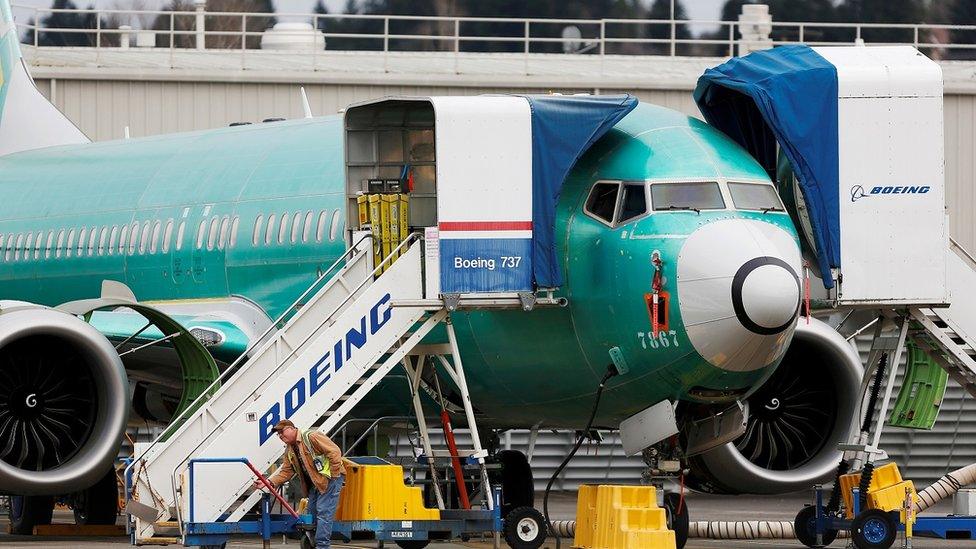
- Published17 July 2019
